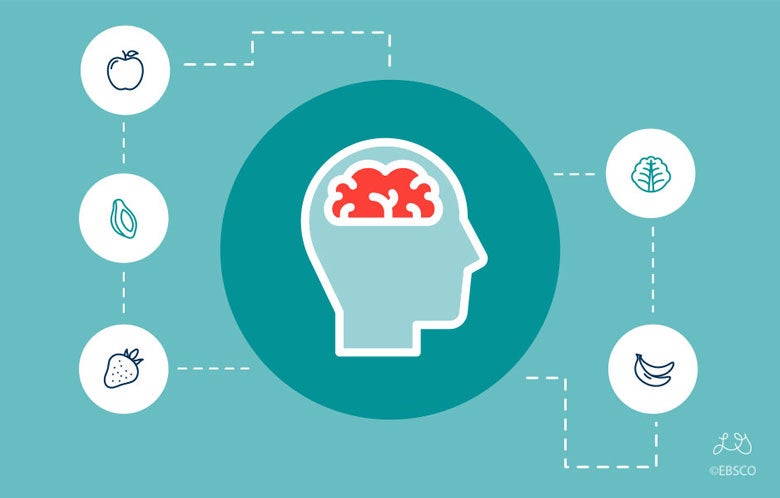Dementia is defined as a decline in mental ability that affects every day functioning and memory. A condition that affects an estimated 47 million plus people worldwide presents with symptoms including memory loss, difficulty thinking, difficulty communicating, difficulty with coordination and motor functions, general confusion and disorientation. While the prevalence of this debilitating condition is projected to increase significantly in the decade to come, there are things your patients can do to decrease their susceptibility to this condition, including adopting a healthy diet. Latest studies suggest that making better healthy food choices can boost brain function and reduce the risk of dementia.
Several factors can affect a person’s risk for developing dementia. Age and genetics are of course not controllable, but daily lifestyle choices such as smoking, excessive alcohol use and poor diet habits can contribute to the risk for developing dementia as well. Diet affects the risk for atherosclerosis, which is thickening and hardening of the artery walls due to plaque buildup. High levels of LDL cholesterol and high homocysteine, an amino acid, can interfere with the flow of blood to the brain, impairing the ability of brain cells to function properly. This can ultimately lead to the death of these brain cells and their connections to other brain cells.
Seniors who carefully follow diets intended to reduce blood pressure have a 35 percent lower risk of declining brain function as they age.
Seniors who carefully follow diets intended to reduce blood pressure have a 35 percent lower risk of declining brain function as they age.
Because some of the risk factors associated with dementia are related to the health of blood vessels, what is good for the heart, is also good for the brain. Seniors who carefully follow diets intended to reduce blood pressure have a 35 percent lower risk of declining brain function as they age.
A healthy diet includes fruit and vegetables with a variety of colors, whole grains and nuts, as well as poultry and fish to take in the essential omega-3 fats. Choosing foods that are low in saturated fat, cholesterol, sugar and salt is also advised. Foods rich in antioxidants such as cranberries, blueberries, blackberries, beans and artichokes coupled with minimizing fried foods will reduce the risk of many disease processes including dementia.
Choosing a healthier diet, may not only delay or avoid dementia, but can help to prevent other health conditions as well.
Like what you read? This content was created with the latest clinical evidence from EBSCO Health point-of-care tools including Nutrition Reference Center™, DynaMed Plus® and Nursing Reference Center™ Plus. Explore more on the topic of dementia and the impact that nutrition can have on patients already living with the condition by downloading the free topic below from Nutrition Reference Center.
